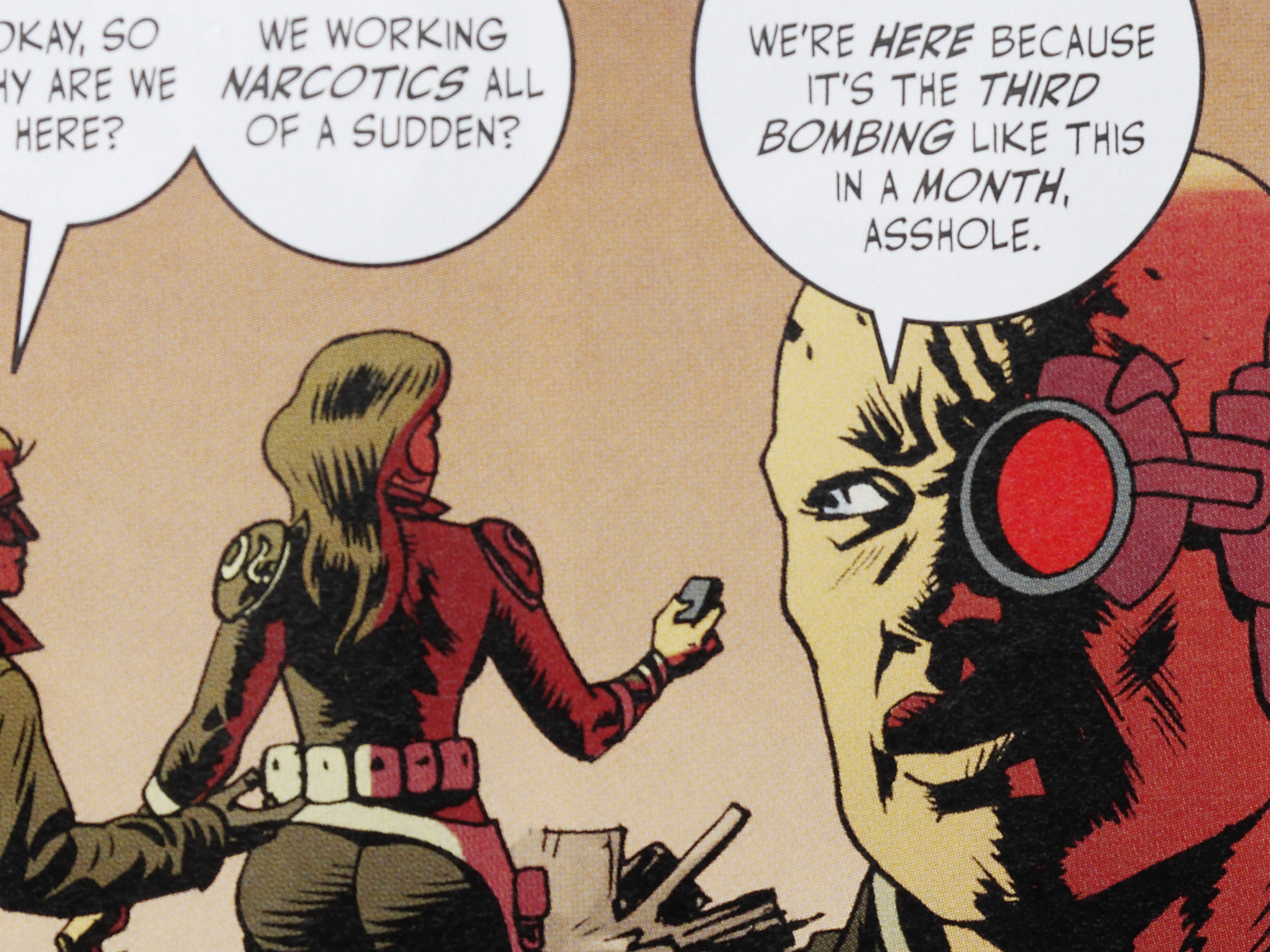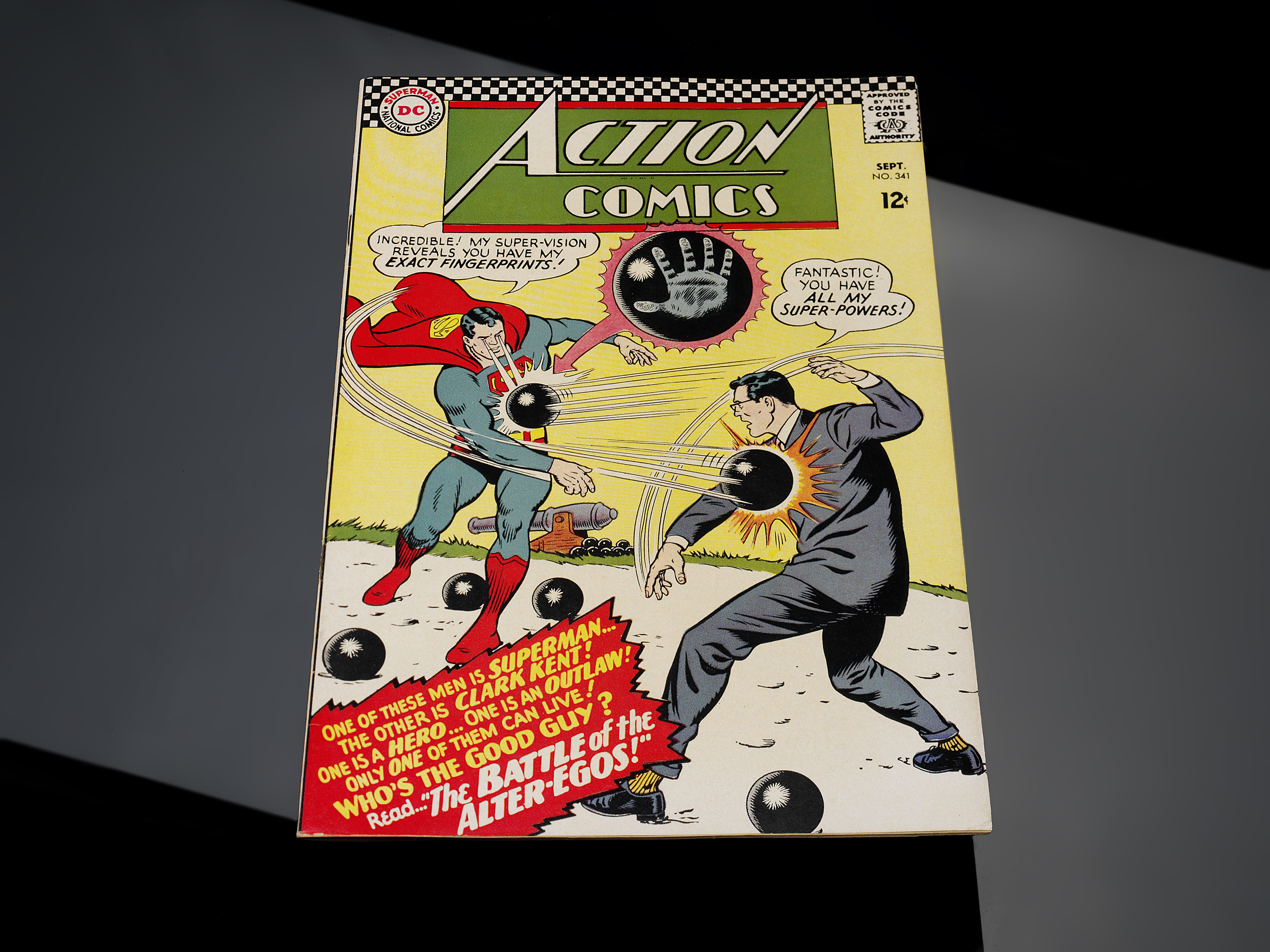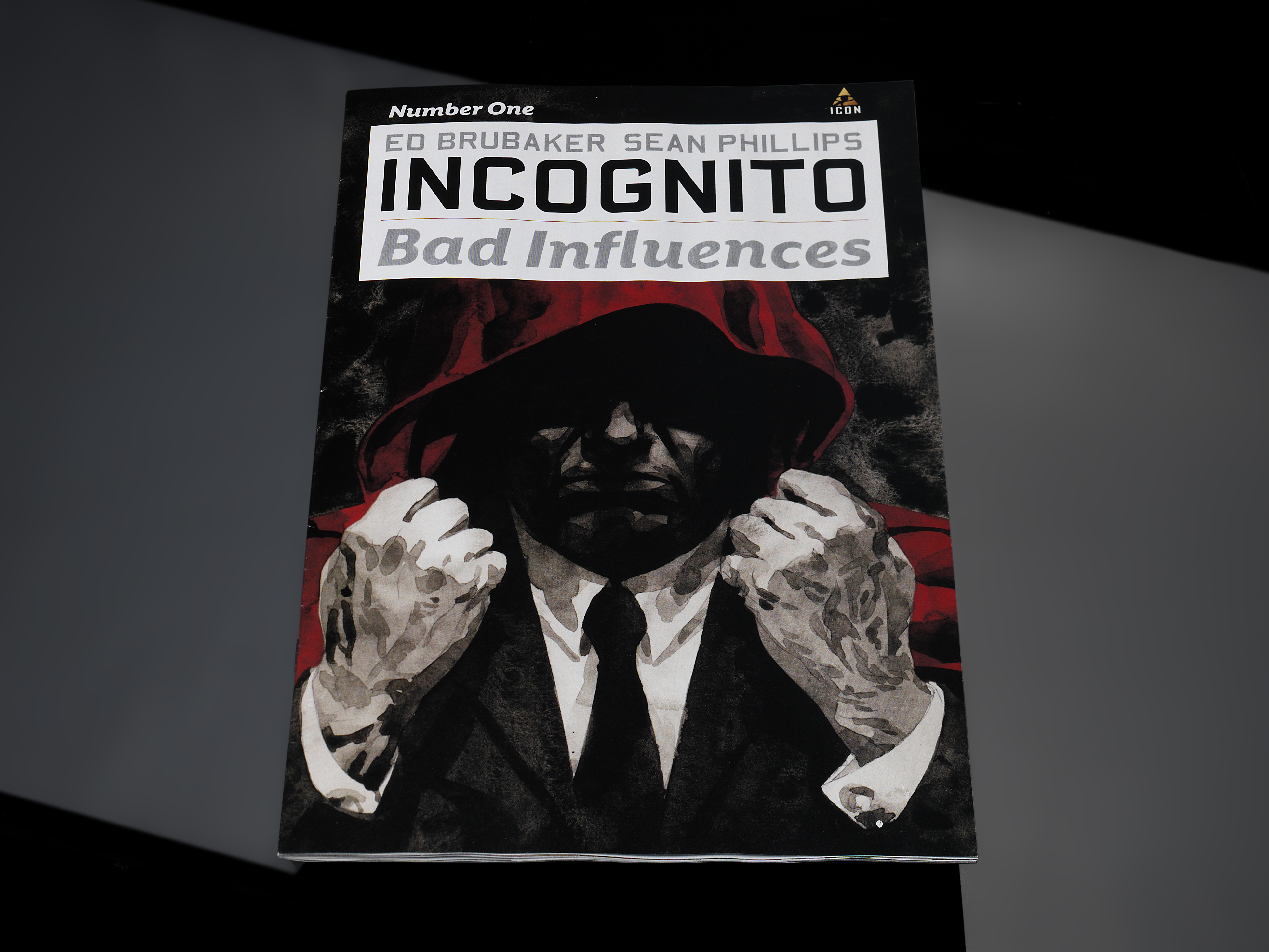Super Geek: why it’s time to start collecting classic comics
Find out how to make 'Free Comic Book Day' your springboard into the king of all geek hobbies...

Today is ‘Free Comic Book Day’, which sees the comic world’s big publishers and stores give away special issues designed to get you hooked on its graphical adventures.
But comics are just for kids and hipsters, right? Not so, captain cynical. As our comics ‘super geek’ explains below, these seemingly anachronistic adventures are still the engine room for much of today’s pop culture – and we’re not just talking superhero movies.
You can find which stores near you are participating in ‘Free Comic Book Day’ at the site’s store locator. But before then, let us convince you why comics are the ultimate geek hobby and reveal the best ways to start your collecting obsession.
The case for comics (by collector Dr Tony Tomb)
Being a comic book fan today doesn’t just mean being obsessed with pictures and speech bubbles. It means having your finger on the pulse of the entertainment business.
Even if you haven’t read a comic since The Beano, you can’t escape the stories that start out as comics – after Kick-Ass, Scott Pilgrim vs the World and Iron Man, this year sees the release of Captain America: Civil War, Suicide Squad (see trailer above) and Doctor Strange.
Recently we heard that, having debuted in the second series of Daredevil, The Punisher will now be starring in his own Netflix mini-series, making it the sixth Marvel series on the streaming service alongside the likes of Jessica Jones and the upcoming The Defenders.
And let’s not forget The Walking Dead, still one of the best shows on telly, was based on Robert Kirkman’s episodic zombie apocalypse comic of the same name. Computer games are also increasingly employing graphic novelists to marry stories and characterisation to their visuals. Being a fan of comics no longer carries a nerdy stigma.
As a fan for over 20 years, it’s a strange feeling knowing my passion is no longer niche. It started for me with The Beezer and 2000 AD, then as I grew into adulthood there was the work of the great bearded comics god of Albion, Alan Moore.

Today, the choice is huge. Marvel and DC still deliver the capes and tights that Hollywood loves, while Top Shelf, Drawn & Quarterly and Fantagraphics deliver cool, arty reading, and here in Blighty we’ve been treated to the gritty brilliance of SelfMadeHero.
But whether they’re American superhero adventures, gritty, counterculture-inspired British strips or the varied and often confusing Manga tales of Japan, the reason I enjoy comics remains the same since I bought that first issue of 2000AD; it’s just a brilliant medium for telling stories. All you need is a black felt tip, some imagination and access to a photocopier.
In fact, you don’t even need a pen. From big names such as Marvel to the small presses in the UK that sell their comics direct on the web and at festivals such as Comica in London, fans are finding a diverse range of material to consume on tablets and smartphones.
In the previous few months alone, I’ve read comics by American, French, British, Belgian and Filipino creators. Comics culture is now truly global and covers just about every subject you can think of. And, of course, there are still plenty of superheroes to go around.
Comic collecting tips
1) Protect your investment
If you want to be able to resell your comics at a later date, or just keep them pristine, store them inside plastic bags with card inserts to hold them flat. These can be bought from comics shops, in a variety of sizes. Comics from the 1930s, for example, are usually wider than those published today.
2) Buy old
It goes without saying that older comics are more valuable, because they’re harder to find. Western comic books can be classified into four eras –Modern Age (1979 to present), Bronze Age (1970s), Silver Age (1955-1970s) and Golden Age (1935-1950s). It’s comics from the Golden Age that provide the best investment.
3) Try to specialise
Don’t attempt to collect everything. There are more comics in existence than minutes in the day – learn what you like and limit your collection to an era, a publisher, a character or a series. This will make your collection more interesting and focused, and you’ll be more nowledgeable on your chosen subject.
4) Don’t believe the hype
Many new issues enter the world amid a great deal of hype, and some that may appear a big deal at the time – The Amazing Spider-Man issue 583, for example, in which Spidey meets President Obama – often collapse in value shortly afterwards. Most collectors say a comic’s value can be judged two years after its release.
Where to start

Action Comics No. 341 £25
As the title that birthed Superman in its first issue back in June 1938, Action Comics is arguably the most influential comic series in the world. Published by industry giant DC, they’re now up to No. 957 having recently returned to their original numbering system. This issue, No. 341, hails from comics’ ‘silver age’ of 1966, features a classic Superman story and picks up around £25 second-hand. In 2014, a copy of Action Comics No. 1 sold for US$3.2 million, the most expensive comic book ever sold – a decent return on the original cover charge of 10 cents.

Incognito: Bad Influences No. 1 £2
Back when AMC struck big with The Walking Dead, comic fans started predicting the next breakout series. Many had their money on Incognito, which was optioned for a film adaptation by 20th Century Fox back in 2010 but hasn’t (yet) made it to the big screen. Given the growing thirst for troubled anti-heroes, we’re hoping it could yet be resurrected for cinema or TV series. Published by Marvel’s Icon Comics imprint and written by Ed Brubaker (Captain America, Daredevil) with art by Sean Phillips (Batman, Hellblazer), it follows a supervillian (Zack Overkill) living in a witness protection programme. Indebted to the reinvention of superhero stories by Alan Moore’s Watchmen, this could yet become a cult classic.



